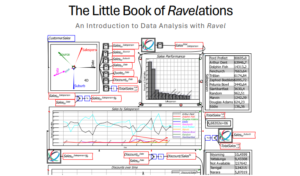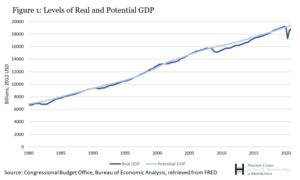In the neoclassical and Austrian schools of economic thought, government intervention in free markets distorts the “invisible hand” and leads to problems.
To them, government intervention is never a good thing.
This is based on the belief that markets always settle at optimum equilibrium.
Maybe not right away, but eventually, and always.
But is their concept of a free market, free of government intervention even a thing?
Are there truly market economies with little or no government control?
Where governments never influence the picking of winners and losers?
Table of Contents
Governing involves creating rules
Governments define the rules for society, which include the rules for the economy.
And as the rules of the economy are (depending on your perspective) either a subset of society at large, a significant influence on societal behavior, or an expression of our collective beliefs and values, how can a government NOT make rules that interfere in the operation of our markets?
For example: safety regulations
Airbags
As evidence piled up that airbags saved lives, governments mandated airbags for cars.
Was this government intervention? Or safety?
By making airbags mandatory, they created greater economic opportunities for companies that made airbags and airbag parts.
At the same time, they increased the cost of every car.
So from a purely financial perspective, the winners are airbag manufacturers and the losers are car manufacturers and car buyers.
Food
I don’t know about you, but I want to know the food I buy is safe.
Just last week, onions in 37 US states were recalled.
They were linked to salmonella outbreaks.
While it’s terrible this happened, I do not believe this demonstrates food safety regulations are ineffective, as I suspect some laissez-faire proponents might argue.
The regulations include testing, monitoring, reporting, and recalls.
But, requiring food processors to follow those rules increases their costs.
So from a purely financial perspective, the winners are companies who provide food inspection and testing services, and the losers are the growers, distributors, and consumers, who bear the cost of those services.
Healthcare
In the United States, there may be no more regulated industry than healthcare.
In fact, if any industry is a poster child for crony capitalism regulation for the protection of boosting profits, it’s healthcare and pharma.
So while the implementation in the United States may be severely flawed, the idea of healthcare regulations isn’t.
But, even if all the profit-protecting regulations (surprise medical billing for example) were removed, there would still be increased costs due to safety protocols and inspections.
And as markets tend to optimize for profits and not patient health, good safety regulations are needed.
Yet they do add cost.
And there are private companies that sell safety services to health care providers.
So again, from a purely financial perspective, the winners are the companies who make money selling health care safety services, and the losers are health care providers, health insurance companies (although considering how much THEY distort American health care it seems silly to mention them here, but they do pay more as a result), and patients.
So isn’t “government intervention” unavoidable?
Effectively, the people who make the rules on behalf of the greater society ARE the government.
This was true when ancient Greek city-states were ruled by Kings.
This was true during feudalism when feudal lords made the rules for their serfs.
This was true when the early North American colonies were ruled by governors.
Today I understand that in the rural areas of Somalia and Afghanistan the central governments’ of those countries have little to no influence.
This doesn’t mean there are no rules, but rather that the rules are established more locally.
Even in societies where the main rule is “might makes right” and disputes are settled with violence.
Whoever wins dominance in those societies are, for all practical purposes, the government, as they make the rules.
So how then is it possible for there to be an economy in which government intervention does not occur?
Or is that simply not a thing?
Surely, Adam Smith had opinions on this
As a matter of fact, yes he did.
The British Conservative MP (Member of Parliament for my American readers) Jesse Norman, wrote a biography of Adam Smith in which he claims that what most of us think Adam Smith said on this topic, is not in fact what Adam Smith said on this topic.
Norman, a Conservative member of the U.K. Parliament, said in an interview with MarketWatch that Smith saw markets as the product of evolution, shaped by traditions, social norms, trust, the law and government.
Watts, Williams. “Busting Myths about Adam Smith, Free Markets and the Invisible Hand.” MarketWatch, 20 Sept. 2018, www.marketwatch.com/story/busting-myths-about-adam-smith-free-markets-and-the-invisible-hand-2018-09-18.
Well, if governments taking an active role in shaping markets is good enough for Adam Smith, who am I to argue?



